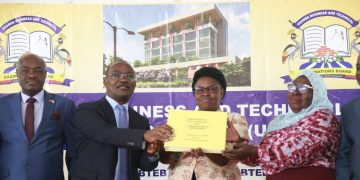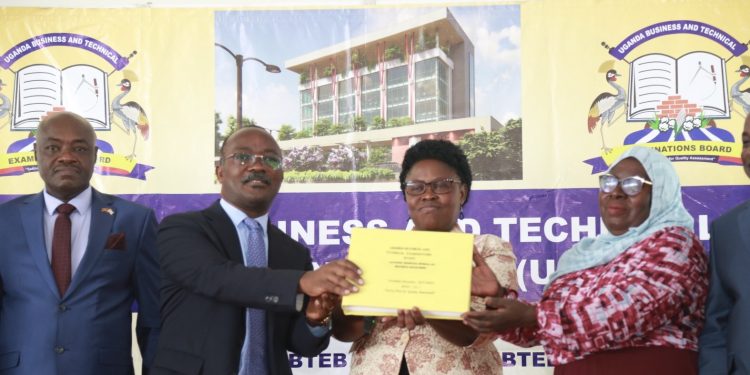The Uganda Business and Technical Examinations Board (UBTEB), has released the November/December 2023 end-of-program examination results.
The results include those of the first cohort of Modular Assessment. The modularisation of assessment is a recommendation from National Development Plan III (NDP III), the Technical Vocational Education and Training (TVET) Policy 2019 and the NRM Manifesto where emphasis has been put on flexible learning and assessment for employable skills to reduce youth unemployment.
The Board conducted the examinations from 20 to December, 23, 2023 in 266 examination centres for different trades.
According to Onesmus Oyesigye – UBTEB Executive Secretary, 93% of candidates successfully acquired all competencies in their respective trades.
He revealed that 23,971 candidates were registered of which 7,573 were females representing 32% while the males were 16,398 representing 68% for final year examinations and assessment.
“Generally, out of the 21,179 candidates who sat for examinations, 20,017 Candidates (93%) successfully acquired all competencies in their respective trades. Out of the 6,593 female candidates that sat, 6,308 representing 96% successfully completed their studies whereas out of the 14,586 male candidates that sat, 13,709 representing 94% completed their studies,” he said.
He noted that the performance implies that overall the female candidates performed better than their male counterparts.
Out of the 23,971 registered candidates, 21,179 (88%) sat for examinations, while 2,792 (12%) candidates were absent from the entire examinations or did not attend some examination papers.
Whereas the percentage of absenteeism has gone on reducing, Oyesigye said that some factors have continued to remain at play.
He said these include fees challenges, absenteeism of trainers, working students and sickness among others.

Oyesigye added that the trainees of National Certificate courses that have undergone their training under the modularised training and assessment, performed better (95%) compared to the performance of candidates in the previously non modularised assessment at 76% in 2022.
He attributed this to the assessment which is flexible, more practical and hands-on training.
“Across all other programmes categories, however, the competence acquisition rates are still very good, above 80%, save for the Advanced craft courses with 69% competence acquisition rate,” Oyesigye noted.
He revealed that candidates who pursue National Certificate courses under the modularised training and assessments will be receiving Certificate of competence for each module in addition to the National Certificate at the completion of the course.
Oyesigye said that the Board expects great improvement in bridging the job gap since the new graduates can competently create their own employment and absorb other youth.
Joyce Moriku Kaducu the state Minister for Primary Education, while Representing the Minister of Education and Sports, Janet K Museveni, noted “The positive changes being implemented by the Board in line with the priorities of Government in Skills Development Agenda and also the affirmative action in supporting the girl child. I am happy to note that in the results being released today, female candidates have performed better than their male counterparts and that the number of girls have continued to increase in Technical Vocational Education and Training (TVET) institutions.”
She noted that government has put in place women Empowerment Programmes in different Sectors of the Economy.
“In TVET sub-sector, emphasis is on enrolling of more females to pursue TVET courses. My Ministry therefore, offered sponsorship to female students interested in doing Diploma programmes in the Academic year 2024/2025 in the following disciplines; Road construction and maintenance, welding and metal fabrication, manufacturing Technology, Equipment maintenance Technology and Mechanical engineering technology. This is to address the imbalances in access to TVET where these girls have small enrollment.”
She further applauded the Board for continuous engagements with key stakeholders mainly the world of work in an effort to support the call for a TVET that delivers and is fit to address the skilling gap of the industrial workforce.
On his part, the Board Chairperson, Dr Eng Silver Mugisha, thanked all stakeholders especially the Technical Vocational Education and Training (TVET) Assessment working Groups and other stakeholders from the industry for their significant contributions during the process of developing assessment guidelines and modules.
He pledged the Board’s commitment to continue with the effective delivery of its mandate in line with the National Development agenda on Human Capital Development.
“I am happy to report that the Strategic Plan of the Board has prioritized addressing the critical and scarce skills through alignment of the assessment to the demands of the industry. This has been achieved through promotion of close working relations with the industry and modularized assessment of competences,” he said.











